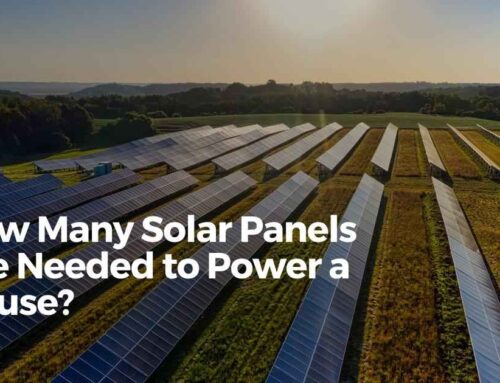You may go off the grid or stay on it with several solar energy system setups. The benefits of grid-tied solar systems, freestanding solar systems, and hybrid solar systems are covered in this article (or Off-Grid solar systems). This article examines the various alternatives so you can make an informed decision. Each option has advantages and disadvantages. Understanding your long-term energy use and your load profile is crucial when making this decision. Before looking at the various solar system kinds, let's examine the pros and cons.
be quite advantageous, both for the environment and the private economy.
Solar energy is becoming the primary electricity source for many families, thanks to readily available solar panel incentives and the market's fiercely competitive rates. As a result of recent considerable advancements in technology and the addition of solar battery storage devices, solar energy is now a considerably more effective source of clean energy.
No matter the energy source you choose to examine, there are always drawbacks. Smart Sun Power, a nationally acclaimed solar installation company, outlines some advantages and disadvantages of each system for you to make a wise choice according to your needs:
Different types of solar systems- Grid Tied System or On Grid System
- Off Grid System
- Solar Hybrid System
Grid-tied systems are constantly linked to the grid, as the name implies. Your solar panels generated electricity is fed into the grid. Your loads need power from the grid when there is no sunshine. An on-grid solar system does not require a battery to store electrical energy. Your solar energy is stored, in this case, by the grid.
Advantages- An on-grid solar system is substantially less expensive than off-grid or hybrid systems because it does not require battery banks or other independent components.
- It makes it easier for you to use net metering. You can sell any surplus power you generate back to the utility. As a result, you only pay for the net kWh of power consumed at the end of the month.
- You cannot store power because you lack a battery bank. You won't have electricity if your grid goes down overnight.
- You must pay the monthly costs that utility providers demand on grid solar system.
Solar systems that are off the grid or stand-alone systems are not linked to the grid. Electricity generated by the solar panels is stored in the battery banks. This electricity is utilized to supply power at night. This is your only option when you are in a rural place with no energy and no grid access. Standalone systems are also employed in locations with a grid; however, the power source is unstable.
Advantages- The only option if you live in a remote area with no grid access
- The feeling of being self-sufficient for your energy demands is great.
- Grid failures and downtime won’t affect your power supply
- The additional costs of installing a battery bank from a trustworthy solar installation company, and in some cases, an alternative power source like a diesel generator, make these systems more expensive than a grid-tied system.
- Standalone systems have more components and therefore need more maintenance. Especially the batteries need regular care.
- Replacement of battery banks is another problem. Battery banks are designed to last for 7-10 years, after which they need to be replaced. This is a cost that you need to take into account.
The best of both worlds can be said to exist in hybrid solar systems. They are also known as off-grid solar systems with utility backup options. You must have a disconnect switch in one configuration of this system, which you may turn on or off depending on your electrical needs. This changeover is often automated.
Advantages- You have the freedom to choose when to use power from the grid or your battery bank.
- Less costly than a fully standalone system because a backup generator is not required. The grid connection option acts as a backup power source.
- If the grid is accessible, you can probably reduce the size of your battery bank.
- If the grid is dependable, there will be less maintenance and more reliability.
- It cannot be used in remote areas where there is no grid power.
- On-grid, standalone, or hybrid solar system, the choice is yours
After comparing the pros and cons of various solar power systems, you can decide which option serves your purposes and is the best for you!






Leave A Comment